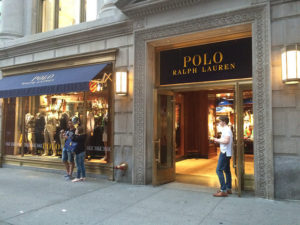
Ralph Lauren, Payless Shoes, and the Kardashians’ Dash boutique have been sued for allegedly discriminating against visually impaired customers. According to The Fashion Law, plaintiff Andres Gomez filed separate lawsuits against each company last week claiming that, because the defendants’ websites are not equipped with any screen reader software, they have effectively “denied visually impaired [customers] from having full and equal access” to them, thus violating the Americans with Disabilities Act (ADA). The ADA is a federal civil rights statute that provides that “no individual shall be discriminated against on the basis of disability in the full and equal enjoyment of the goods, services, facilities, privileges, advantages, or accommodations of any place of public accommodation.” Gomez argues that, because the defendants’ websites are extensions of their stores, which are places of public accommodation, they are subject to ADA standards. Gomez is legally blind and, like many other visually impaired individuals, relies on screen reader software to use the Internet and comprehend online information. Without screen reader software, visually impaired customers are unable to access and enjoy the goods and services provided by websites. By failing to provide screen reader software, the defendants’ websites have therefore “shut them out of an advantage and opportunity afforded to the non-disabled public.” Gomez is seeking monetary damages and asking the court to order defendants to “continually update and maintain [their] websites to ensure that they remain fully accessible to and usable by visually impaired individuals.”
This has recently become an increasingly common topic of litigation. Gomez filed similar lawsuits against many other fashion retailers in the past year, including Nike, H&M, and Louis Vuitton, and reached out-of-court settlements with some defendants. However, many other plaintiffs have also alleged ADA violations against retail companies’ websites. In March, a landmark ruling in California saw the judge rule in favor of a blind plaintiff who sued a dozen companies for failing to have ADA-compliant websites. The plaintiff was awarded $4000 in damages and the companies were ordered to make their websites accessible to the visually impaired. The ruling will undoubtedly have far-reaching consequences and alert retail companies of the importance of website accessibility.
Prudence Ng is an Entertainment Highlight Contributor for the Harvard Journal of Sports and Entertainment Law and a current first year student at Harvard Law School (Class of 2019).
